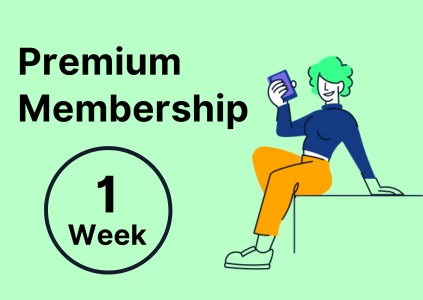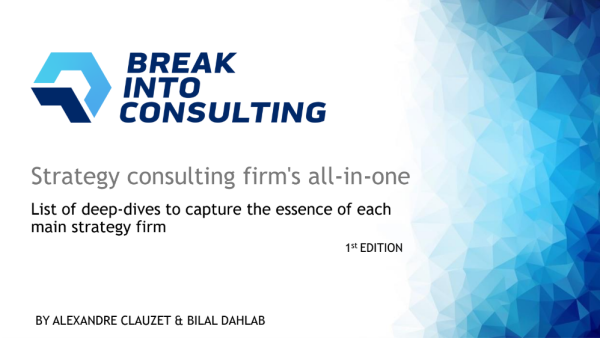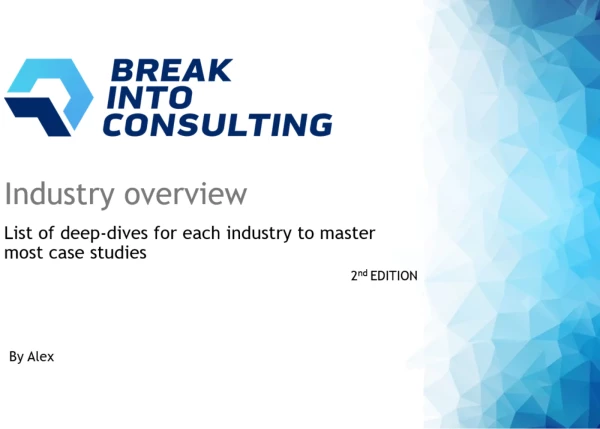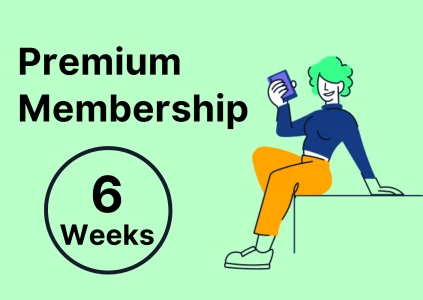What kind of questions should be asked as clarification questions?
Werde aktiv in unserer Community aus über 452.000 Gleichgesinnten!
What kind of questions should be asked as clarification questions?
Übersicht der Antworten
Very simply (and depending on the case) clarification questions should be structured around getting more understanding of (one or more of below list):
- External factors such as competitor, market forces etc
- Company's business model- customer segments, channels & products/services
- Impact of the problem, urgency, investment/budget constraints
- Goals/Vision/Objective
Think of these questions as information gaps you have during the case opening and answers to these questions will help you get to the right structure/framework.
Also, check out these related Q&A-
- https://www.preplounge.com/en/consulting-forum/clarification-questions-9069
- https://www.preplounge.com/en/consulting-forum/clarifying-questions-timeline-10595
Anything that defines your box or anything that makes it smaller!
That is, anything that you don't understand (about the business, situation, objective, etc.) or anything that will help you narrow your framework (i.e. eliminate buckets)
As such you can have anything in there - except asking for the solution to the case! But broadly here is a conceptual list of things:
- Key objective
- Key success parameter for the client
- About the client (business model, product, scale, etc.)
- About the market (competition, demand, historicals, etc.)
Basically anything that provides you more detailed information compared to the case prompt - should be in your clarifying questions.
Thats not to say that you can keep asking them for an hour. Keep them short and targeted. 4-6 max. Which ones to ask is an art - and depends on case to case. The best way to learn is only by practice.
Hi there,
This is indeed an interesting question which is probably relevant for quite a lot of users, so I am happy to provide my perspective on it:
- Generally speaking, it really depends on the specific questions to be solved and the information provided by the interviewer.
- Still, I would advise you - as I do with all my coachees - to at least clarify the following three questions:
- What does success look like for the client, how does he want to measure it and are there any restrictions when it comes to reaching it?
- What is the scope of the question (i.e. what type of answers is the client looking for)?
- What does the specific business model of this client look like?
In case you want a more detailed discussion on how to solve any type of case study, please feel free to contact me directly.
I hope this helps,
Hagen
In general, should be around the following topics:
- Confirming the prompt given by the interviewer and understanding any technical terms
- Making the goal clear, both qualitatively and quantitatively (e.g. is there a specific target? are there secondary goals? What number exactly? What do they mean by “being successful in the new market”?)
- Understanding any potential constraints or scope issues (e.g. growth in that market or international expansion is under scope? Is this a standalone target or part of a larger strategy?)
You can also ask questions regarding the context of the problem and the business model (both at a high level), but with the following caveat. You must not ask any question that is actually a potential solution to the problem or leads to an hypothesis. You also have to ask questions to which there is an implication on what you have to do.
For example, you can ask about the company businees model. You should not ask, as a clarification question, “is this profitability issue specific to the company or is it a market wide problem?” as in this case you are jumping to “problem solving mode” before having stated the approach you want to follow.
Hope this helps!
Hey there,
I would ask two types of questions, broadly speaking:
- Questions that help you understand the situation better (business model of the client, operating model, etc.)
- Questions that specify the goals a bit more (target measures, timeline, boundary conditions)
Keep it short and sweet!
Cheers,
Florian
Great question! My suggestion would be:
1. Anything to help you understand the prompt - terms you are unclear about, a basic understanding of the client's business model and current operations
2. Goals and constraints - financial/market share goals, timeline, and budget constraints
Hi!
It really depends on the case but generally:
- Objective
- Context / Client business model
Hope this helps.
Best,
Anto






